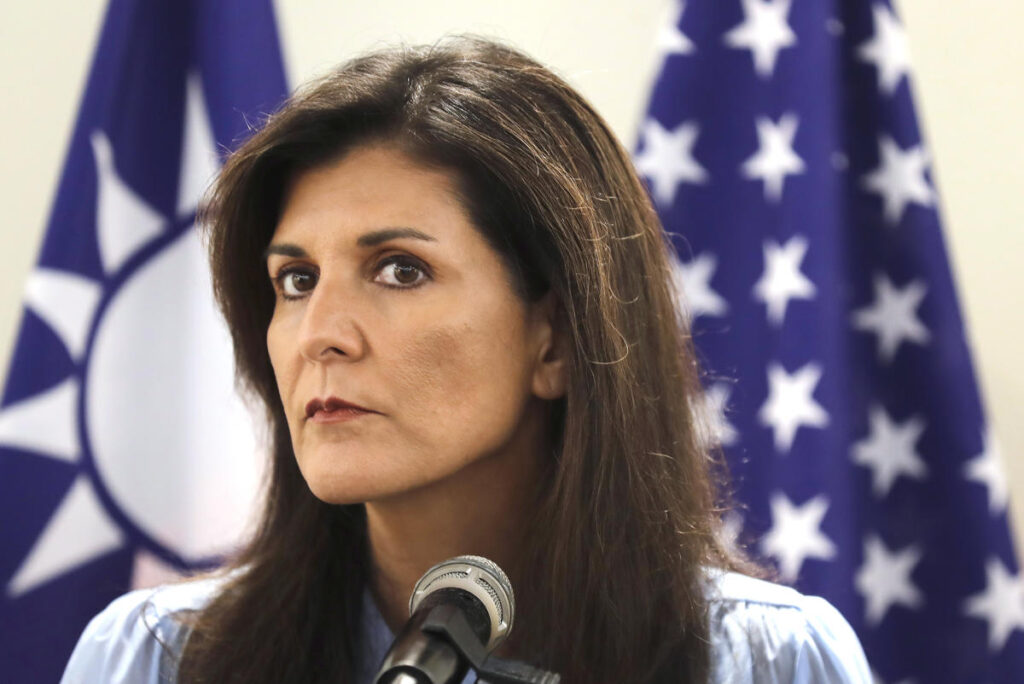Nikki Haley, the former U.N. ambassador and South Carolina governor, has made a significant mark in the Republican primary by garnering more votes than any other contender against Donald Trump for the 2024 presidential nomination. Despite this success, she has maintained a complicated relationship with Trump, one that has left many observers puzzled about her current role in the Republican campaign. Although Haley has publicly pledged her support for Trump—releasing her delegates to back him at the Republican National Convention and expressing her intent to help when available—she has not actively campaigned for him. Instead, a source familiar with the situation indicates that while she has provided Trump’s campaign with potential dates for appearances, none have been confirmed. Trump’s campaign has not offered any comments regarding this arrangement.
During the primary season, Trump and Haley’s relationship was fraught with tension. Haley openly challenged both Trump and President Joe Biden, raising questions about their fitness for office. She notably suggested that nominating Trump could lead to Kamala Harris assuming the presidency, indicating her belief that Biden would not be able to complete another term. Haley’s primary message consistently emphasized that America would have a female president, either her or Harris, and she often characterized Trump’s candidacy as leading to “chaos.” This antagonism reached a boiling point when Trump, following a campaign event in South Carolina featuring Haley, used derogatory language to describe her.
After withdrawing from the race post-Super Tuesday, Haley took her time before officially endorsing Trump two months later. When she finally attended the Republican National Convention, she emphasized the importance of party unity but left her endorsement open to interpretation. In her comments to attendees, she conveyed that complete agreement with Trump was not a prerequisite for supporting him. Moreover, her support for Trump is not merely nominal; she has launched her own Sirius XM radio show where she critiques Harris while also participating in low-dollar fundraising efforts for Trump.
Haley’s absence from the campaign trail with Trump may signal a strategic decision to preserve her political future. Analysts suggest that by endorsing Trump without actively campaigning for him, Haley could appeal to both pro-Trump factions and those within the party who are critical of him. Veteran Republican strategist Terry Sullivan pointed out that her approach allows her to maintain a dual appeal: she can attract “never-Trumpers” while also ensuring pro-Trump voters see her endorsement as a committed gesture. This balancing act might be crucial for her ambitions in future elections.
Despite Haley’s efforts to distance herself from Trump’s more controversial aspects, she has faced challenges with some of her former supporters who are now disillusioned with Trump’s nomination. In response to growing interest from Harris’s campaign, which is seeking to woo Republican voters, especially those who previously backed Haley, she has made it clear that she fully supports Trump while denouncing any interpretations of her statements as alignments with Harris. In her defense, she emphasized the stark contrast between her agenda and that of Harris.
In conclusion, Haley’s nuanced position within the Republican Party illustrates the complexities of aligning personal ambitions with party dynamics. By supporting Trump yet refraining from direct campaigning, she is crafting a narrative that could benefit her future political endeavors. Her strategy may well involve positioning herself as a moderate alternative attractive to a broader voter base, especially as the general election approaches and divisions within the party become more pronounced. Ultimately, Haley’s choices and statements will continue to be scrutinized as they reveal insights into the evolving landscape of the Republican Party and its leadership for the future.

